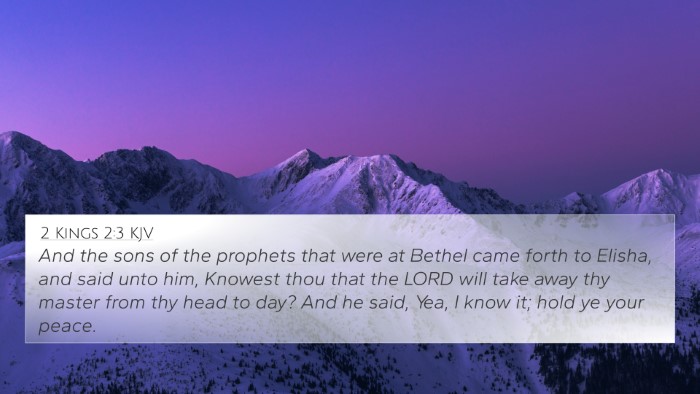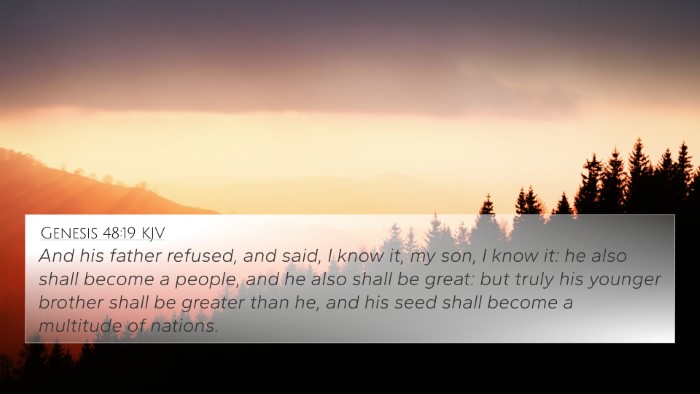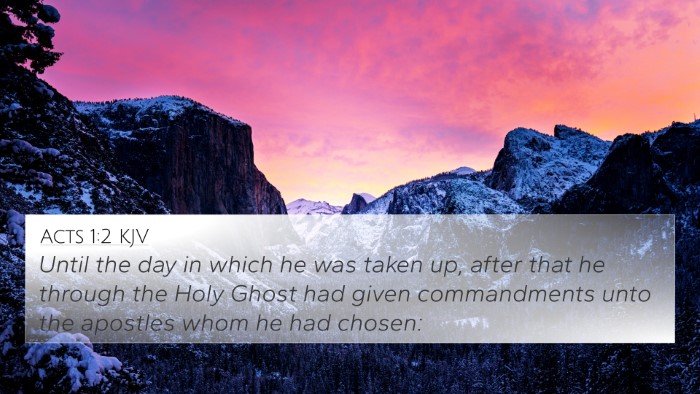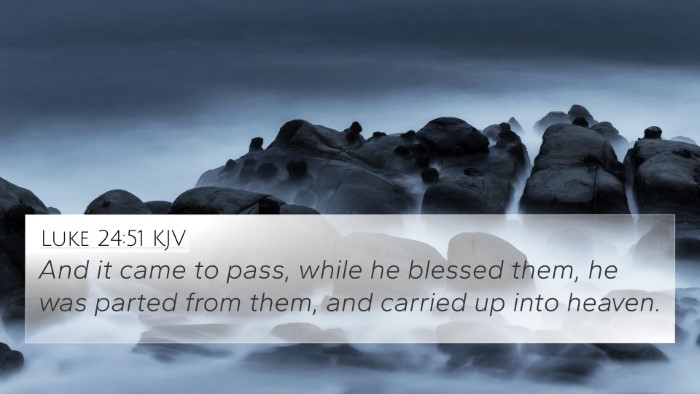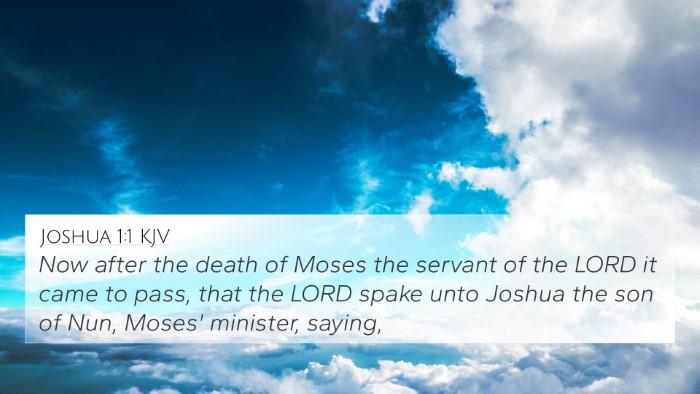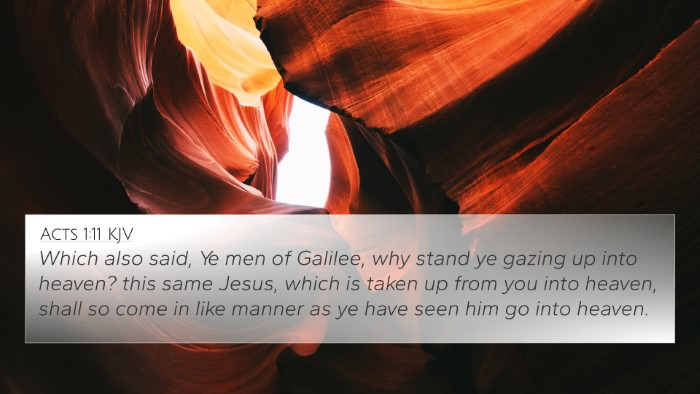Understanding 2 Kings 2:5
In this significant verse, we encounter the moment when the prophets in Jericho observe the events surrounding Elijah and Elisha as the former prepares to be taken up to heaven. This verse serves as a rich source for Bible verse cross-references and thematic connections with various scriptures across the Bible.
Context and Background
2 Kings 2:5 states, "And the sons of the prophets that were at Jericho came to Elisha, and said unto him, Knowest thou that the Lord will take away thy master from thy head today? And he answered, Yea, I know it; hold ye your peace." This verse occurs in a pivotal chapter that details the transition of prophetic leadership from Elijah to Elisha.
Verse Analysis
According to Matthew Henry, this verse highlights the awareness and prophetic insight of the disciples (or sons) of the prophets. They had a prophetic spirit and were acquainted with what God was about to do. Their approach to Elisha illustrates their respect for the prophetic ministry and the connection between the prophets.
Albert Barnes notes that the repetition of accessing Elisha's knowledge about Elijah's departure reinforces the gravity of the moment. He emphasizes that the prophets were not simply regular followers but had a significant role within the narrative. They acknowledged the impending transition, suggesting a continuity of God's plan.
Furthermore, Adam Clarke elaborates on the significance of the phrase “hold ye your peace,” interpreting it as Elisha’s command to silence the grieving voices. Elisha is aware of the fate of his master but chooses to focus on what lies ahead rather than dwell on sorrow. This points toward themes of acceptance and forward-looking faith.
Bible Cross References
2 Kings 2:5 connects with several other passages in the Bible, establishing a comprehensive understanding of prophetic succession and God's plan. Below are some of the key cross-references:
- 2 Kings 2:1: The initial announcement of Elijah's departure sets the stage for this event.
- 2 Kings 2:3: The sons of the prophets approach Elisha, acknowledging the divine act about to unfold.
- John 14:12: Jesus speaks of doing greater works, paralleling Elijah's ministry and Elisha’s prophetic role.
- James 5:17-18: Highlights Elijah’s prayer and faithfulness, emphasizing prophetic authority.
- 1 Kings 19:19: The calling of Elisha as Elijah’s successor is crucial for understanding this verse.
- Acts 1:9: The ascension of Jesus, reflecting how prophets were taken up by God.
- Matthew 17:3: The appearance of Moses and Elijah at the transfiguration signifies their continued significance in God’s plan.
Thematic Connections
This verse, and its surrounding content, illuminates various themes such as:
- Prophetic Succession: The smooth transition from Elijah to Elisha denotes continuity in God’s purpose.
- Awareness of God's Plans: The prophets showed a heightened sensitivity to divine communication, relevant for every believer's journey.
- Community of Believers: The involvement of the sons of the prophets highlights the collective nature of faith and prophecy.
- Grief and Acceptance: Elisha’s response amid impending loss teaches a lesson on faith during difficult transitions.
Tools for Cross-Referencing
Reading through connections between Bible verses greatly enriches understanding. Tools for cross-referencing like a Bible concordance and a Bible cross-reference guide can enhance your study of passages like 2 Kings 2:5. Methods such as cross-reference Bible study and scriptural cross-referencing allow for deeper insights into scriptural themes.
Conclusion
In summary, 2 Kings 2:5 serves as a pivotal point in the history of the prophets, illustrating the depth of insight into the divine plan. Engaging with cross-references and thematic connections found throughout scripture not only enhances one’s theological understanding but also enriches personal faith journeys. As we explore these biblical texts, may we grow in knowledge and understanding of inter-Biblical dialogue and the connections between Old and New Testament teachings.



